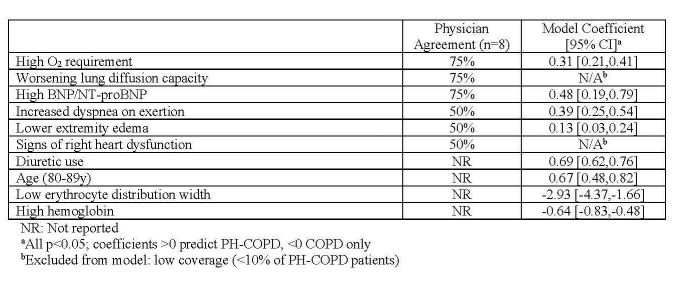Abstract
Background
Due to frequent misdiagnosis, invasive diagnostic tests, and lack of approved therapies, screening for PH among patients with COPD is not routinely performed. Machine learning models can aid in detection of PH-COPD, but it is unclear how model features compare to factors used in clinical decision making.
Methods
A Delphi Panel of PH physicians identified key clinical factors associated with PH-COPD. A machine learning model was trained to identify patients using data from the year prior to PH diagnosis (area under the curve 0.80, sensitivity 72%, specificity 71%). Features included demographics, medications, procedures, imaging/laboratory tests, symptoms, and healthcare utilization. Frequencies of physician-reported factors were compared to model features.
Results and Conclusion
Physicians reported 6 clinical factors with ?50% agreement, 4 of which were eligible for model training and found to be significant (Table). High concordance between physicians and model feature importance could improve adoption of models to identify patients with PH-COPD and support their clinical relevance.
